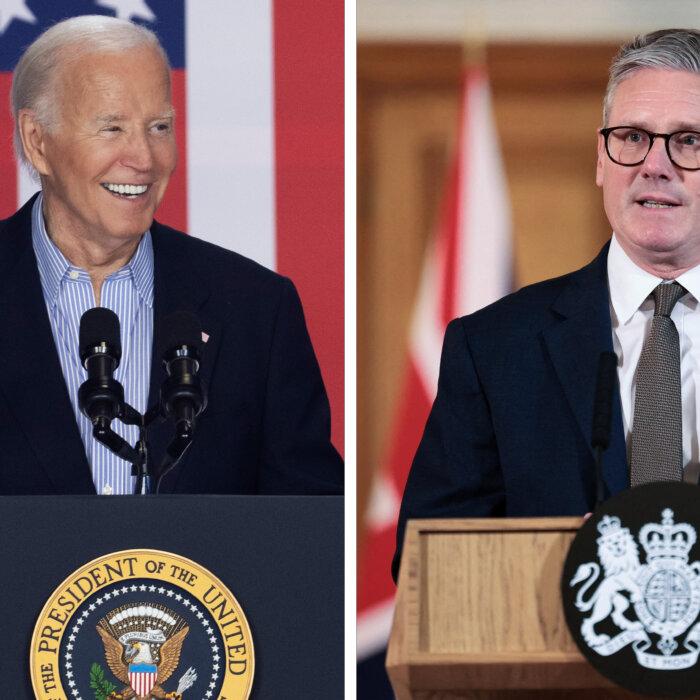The government will switch between cooperation and “robust challenge” when dealing with China, Prime Minister Sir Keir Starmer said on Wednesday.
Sir Keir made the remarks during his first foreign trip as prime minister to attend NATO’s 75th anniversary summit in Washington.
The Labour government’s approach will be “cooperation where it is necessary,“ Sir Keir told reporters, noting that ”it is on issues like climate change for example.”
“But challenge where necessary, equally, and robust challenge with that,” he added.
“One of the first things that we will do is carry out the audit that we set out in our manifesto of relations with China, of UK-Chinese relations. We will get on with that audit and take action accordingly,” the prime minister said.
Before entering Number 10, Labour promised to launch a full audit of the UK’s relations with China within the first 100 days in government to “improve the UK’s capability to understand and respond to the challenges and opportunities China poses,” and bring “a longterm and strategic approach” to managing the two countries’ relations.
Foreign Secretary David Lammy, who had the same portfolio in the shadow cabinet before Labour won the general election on July 5, has said he’s guided by “three C’s”: compete in some areas, challenge in others, and cooperate on issues such as climate and health.
Labour said it would take the approach of “progressive realism,” without making specific pledges on China. It’s unclear whether or how it will deviate from Rishi Sunak’s “robust pragmatism” approach.
Both of the two major parties have said they would pursue closer ties with allies to counter challenges and threats posed by the Chinese regime. Labour also said it’s “fully committed” to AUKUS, a trilateral Indo-Pacific security pact with Australia and the United States formed under the Tories.
During the past 14 years, the Conservative Party presided over a so-called golden era of Sino-British relations and a rapid deterioration of the relationship in recent years.
The party reversed its previous decision to allow China’s Huawei into the UK’s 5G network, tightened laws around espionage and influence campaigns, supply chain, and business takeovers, and ended government funding for Confucius Institutes, but critics have said the government still lacks a coherent China strategy and has acted too little too late around national security and human rights sanctions.
During the election campaign, The Conservative Party ramped up its rhetoric on China, calling its communist regime part of an “axis of authoritarian states and hostile actors,” and pledged to include it on the enhanced tier of the long-anticipated Foreign Influence Registration Scheme, which would mean agents of the Chinese regime will have to declare almost all their activities in the UK.







